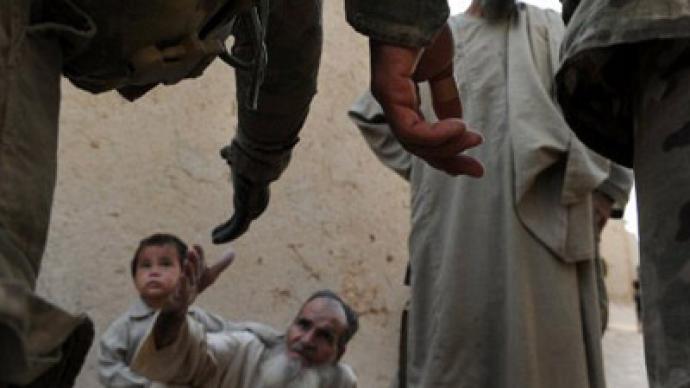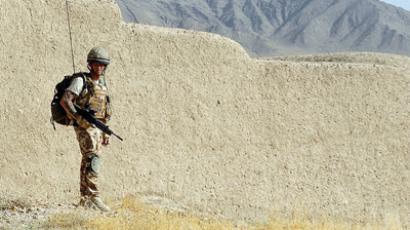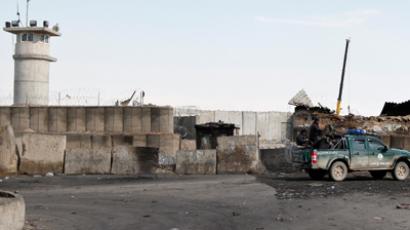Army reviews notorious drug after Afghan massacre

The alleged Afghan massacre shooter Sgt. Robert Bales, who was charged with 17 counts of murder and six counts of attempted murder, may have been under the influence of a drug which is known to cause severe psychiatric side effects.
The notorious incident sparked a request on March 20 by Assistant Secretary of Defense for Health Affairs, Jonathan Woodson to order an emergency evaluation of the military's use of mefloquine. The purpose of the review was to assure troops were not getting the drug inappropriately.According to the Huffington Post, the task order by Woodson to immediately evaluate the “review of mefloquine prescribing practices” was to be completed six days after the order was delivered. Mefloquine, the anti-malaria drug and also known as Lariam,has been associated in several suicides and murders, as well as deaths in the US military. Grim psychiatric side effects which include problems with psychotic behavior, paranoia and delusions are some of the complications that arise from the use of Mefloquine.“Some deployed service members may be prescribed mefloquine for malaria prophylaxis without appropriate documentation in their medical records and without proper screening for contraindications,” the order says. Although Army and Pentagon officials would not disclose if Bales took the drug due to confidentiality guidelines, media inquiries were referred to Army officials who have yet to comment on the matter.The drug which has received a significant amount of scrutiny for the past decade was nearly dropped by the US military back in 2009 in which the known dangers were to blame. The military heavily advised against giving soldiers who had suffered a traumatic brain injury the prescription.In 2010 Bales suffered a traumatic brain injury while on his third tour of combat in Iraq and according to past reports; repeated combat tours escalate the dangers of post-traumatic stress disorder.Karilyn Bales, the wife of the alleged murderer, on an interview NBC's Matt Lauer said the recent happenings were “unbelievable.”Karilyn added on the Today Show, “I have no idea what happened, but he would not – he loves children. He would not do that." But according to the former Army psychiatrists the scenario was highly possible. Elspeth Cameron Ritchie, who was the top advocate for mental health at the Office of Army Surgeon General, wrote in this weeks’ TIME “Battleland” blog, declaring the drug is still being used in Afghanistan and is highly possible Bales was exposed to mefloquine.“One obvious question to consider is whether he was on mefloquine,” Ritchie wrote.In 2004, the United Press International created a report which recorded the intake of the medicine by six elite Army Special Forces soldiers, the use of the drug eventually lead to all of them committing suicide which is a rare occurrence among among Special Forces soldiers. In a separate case Special Forces soldiers have explained the side effects mefloquine takes on your mental health."You're ready to take that plunge into hurting someone or hurting and killing yourself, and it comes on unbelievably quickly,” said one Special Forces soldier identified with permanent brain damage from Lariam.“It's just a sudden thought, it's the right thing to do. You'll get a mental picture, and it's in full color." The UPI report also revealed how mefloquine use was involved in half of the suicides among troops in Iraq in 2003. The reported also stated that the suicide rate dropped by 50 percent after the Army stopped implementing the drug. The first case where mefloquine's effectiveness was questioned was when Staff Sgt. Georg-Andreas Pogany was charged with cowardice after he suffered an incapacitating panic attack in Iraq in 2003 after witnessing the body of a crushed Iraqi. According to Pogany, he sought help but was rejected and eventually charged with cowardice, but the Army dropped the charges after medical professionals determined the individual suffered from Lariam toxicity. Pogany had taken his third pill right before his panic attack.Also in 2002 three elite soldiers who were taking the medicine returned to the US and ended up killing their wives then later took their own lives.














